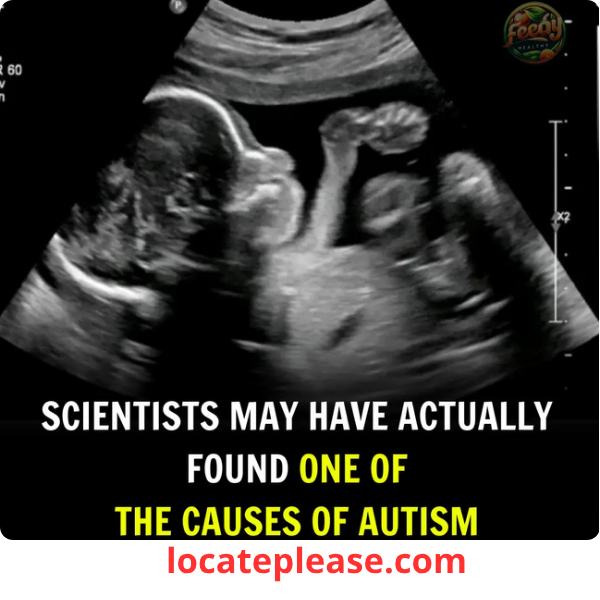In the quiet hum of scientific discovery, a new study is sending shockwaves through the world of developmental medicine. For years, researchers have explored the intricate gut-brain axis — the powerful, two-way communication network between our digestive system and our brain. Now, a groundbreaking study from the University of Virginia School of Medicine is rewriting the narrative: autism risk may be influenced not just after birth — but before a child is even born, through the mother’s gut health.
Published in a leading journal on neurodevelopment and microbiome science, this research reveals a profound connection between a mother’s gut microbiome during pregnancy and the neurodevelopmental trajectory of her child — with implications for autism spectrum disorder (ASD).
The Gut-Brain Connection: A Deeper Look
We’ve long known that the gut microbiome — the trillions of bacteria, viruses, and fungi living in our intestines — plays a crucial role in:
- Immune system regulation
- Nutrient absorption
- Mood and mental health (via serotonin production)
- Inflammation control
But recent advances suggest it also shapes brain development, especially during critical prenatal windows.
According to Dr. Lisa Boulanger, PhD, lead researcher at the University of Virginia School of Medicine:
“The microbiome is really important to the calibration of how the offspring’s immune system is going to respond to infection, injury, or stress. It can shape the developing brain in multiple ways — even before birth.”
This isn’t just about digestion.
It’s about developmental programming — the idea that environmental signals during pregnancy can “set” a child’s long-term health.
The Striking Twist: It’s Not the Child’s Microbiome — It’s the Mother’s
While previous studies focused on the gut health of children with autism, this study flips the script.
The key player? The mother’s gut microbiome during pregnancy.
Using animal models and human observational data, researchers found that:
- Imbalances in maternal gut bacteria (dysbiosis) during pregnancy were linked to altered fetal brain development.
- Certain inflammatory signals triggered by “unhealthy” gut microbes crossed the placenta, activating the fetal immune system in ways that disrupted neural circuit formation.
- These changes mirrored behavioral patterns associated with autism-like symptoms in offspring — including social deficits and repetitive behaviors.
Even more telling:
When pregnant mice were given antibiotics or prebiotics to alter their gut flora, their offspring showed significant differences in social behavior and brain connectivity.
How the Maternal Gut Influences the Fetal Brain
The pathway isn’t direct — but it’s powerful.
- Maternal Gut → Immune Activation
An imbalanced gut microbiome increases systemic inflammation, releasing cytokines (immune signaling molecules) into the bloodstream. - Cytokines Cross the Placenta
These inflammatory signals can pass through the placental barrier, reaching the developing fetal brain. - Fetal Brain Development Altered
Inflammation during critical periods can disrupt:- Synapse formation
- Neuron migration
- Myelination (nerve insulation) These disruptions are hallmarks of neurodevelopmental disorders, including autism.
- Long-Term Behavioral Effects
Animal studies show offspring exhibit reduced social interaction, heightened anxiety, and repetitive behaviors — all analogous to core features of ASD.
What This Means for Future Prevention
This research doesn’t suggest that autism is “caused” by the mother’s gut health — autism is a complex condition with genetic, environmental, and biological factors. But it does point to maternal microbiome health as a modifiable risk factor.
“We’re not looking for blame,” says Dr. Boulanger.
“We’re looking for levers we can pull to support healthier outcomes.”
Potential preventive strategies could include:
- Probiotic supplementation during pregnancy
- Dietary interventions (high-fiber, fermented foods, low processed sugar)
- Reducing antibiotic overuse in expectant mothers
- Screening for gut health markers in prenatal care
A Call for More Research — and Compassion
While the findings are compelling, researchers emphasize caution:
- Human trials are still limited.
- Autism is not a disease to be “prevented” — many in the neurodiverse community celebrate autism as part of identity.
- The goal isn’t to eliminate neurodiversity, but to understand and support healthy development — and reduce suffering where it exists, such as in severe cases involving seizures, GI distress, or self-injury.
Still, the message is clear:
A mother’s health — down to the microscopic level — matters more than we ever imagined.
Final Thoughts: A New Chapter in Prenatal Care
This study marks a turning point — one where prenatal wellness expands beyond folic acid and ultrasounds to include gut health, inflammation, and microbial balance.
It’s a reminder that life begins not at birth, but long before — shaped by invisible forces, quiet signals, and the trillions of microbes living inside us.
And for expectant mothers?
You’re not just growing a baby.
You’re building a brain.
The future of neurodevelopment may not be written in genes alone — but in the gut, from the very start.






